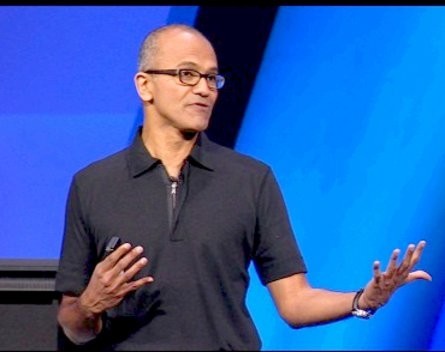
Microsoft will skip the version 9 of Windows and will release instead Windows 10 in 2015. This upgrade will be the last major release of Windows.
The decision to stop releasing Windows as a series of major releases is long overdue and follows the approach (including the choice of the number 10) taken by Apple in releasing minor versions of its Mac OSX system. After the disastrous release of Windows 8, subsequent releases have been largely about rolling back the more radical changes in the user interface. As attention shifts to mobile, the marketing and commercial advantages of releasing major upgrades to operating systems have all but disappeared.
Microsoft will now release changes to Windows via smaller point upgrades, following Apple’s lead with Mac OSX which will shortly be at version 10.10.
This is actually good news for both consumers and businesses who have to deal with the inevitable bugs that come with upgrades along with updates of software changed only to support the new operating system. At the same time, the new features in the upgrade are bringing diminishing direct benefits to consumers as changes become increasingly gratuitous. Insult is added to injury of course when consumers are actually asked to pay for the new versions, a practice that Apple at least has largely stopped.
Businesses who use Windows will also find the end of large upgrades easier to manage as it becomes simpler to deal with more frequent and smaller changes than to deal with a major version change. For Microsoft as well, this will have the added benefit of eventually persuading more of its users to all be on the same operating system. Currently only around 14% of Windows users are actually using Windows 8.x. Nearly twice that are still using Windows XP, a system they offcially stopped supporting this year.
Operating systems should never really have to change as much as they have. The fundamental core of the operating system, called the “kernel)” does now what it has always done. New hardware can be accommodated by adding “device drivers”, something that doesn’t need a change in the kernel to achieve. Likewise, Microsoft learned the hard way that major changes to the user interface are not necessarily welcomed by its customers and even in this case, it would be possible to change this without a major release in the operating system as a whole.
The fact the we may not see radically different versions of Windows, Mac OS or even Linux does not mean that this signals the death of the PC. Like the software that runs on it, hardware on PCs is unlikely to change radically in the future because it has turned out that people are prepared to use multiple devices. Functionality that might have been built into a PC is unnecessary because that functionality becomes available in distinct device types like tablets, phablets, mobile phones and wearables. It has also turned out that adding features like a touch screen to a laptop didn’t make much sense as this was largely made redundant through the use of the keyboard and mouse. Likewise, it is unlikely that devices like the “leap” motion tracking device will become standard on the laptop or PC because again it doesn’t radically improve on what you can already do.
It really shouldn’t come as a surprise that products can reach a point where they fundamentally do not evolve any further and reach a steady state. Technologies that we interact with every day are fundamentally the same as they have been for years, if not decades. A trivial example being the electric toaster which utilises the same technology that it has done for the past 100 years. With computing technology however, we have constantly held an expectation that each year will bring revolutionary change. This is because the mobile phone and tablet have really driven highly public declarations of change in annual launch events. Even here though, we will see mobile phones reach the so-called “climax state”, it might just take the public some time to accept and come to terms with it.
![]() David Glance does not work for, consult to, own shares in or receive funding from any company or organisation that would benefit from this article, and has no relevant affiliations.
David Glance does not work for, consult to, own shares in or receive funding from any company or organisation that would benefit from this article, and has no relevant affiliations.
This article was originally published on The Conversation. Read the original article.


COMMENTS
SmartCompany is committed to hosting lively discussions. Help us keep the conversation useful, interesting and welcoming. We aim to publish comments quickly in the interest of promoting robust conversation, but we’re a small team and we deploy filters to protect against legal risk. Occasionally your comment may be held up while it is being reviewed, but we’re working as fast as we can to keep the conversation rolling.
The SmartCompany comment section is members-only content. Please subscribe to leave a comment.
The SmartCompany comment section is members-only content. Please login to leave a comment.